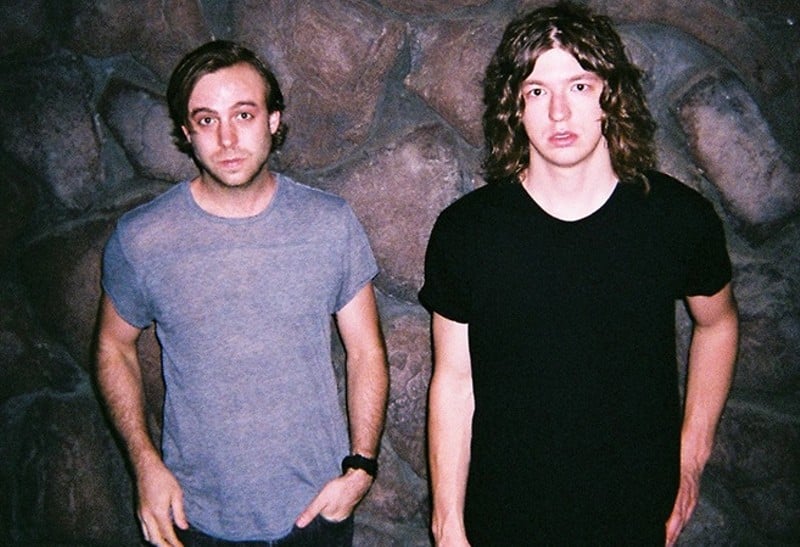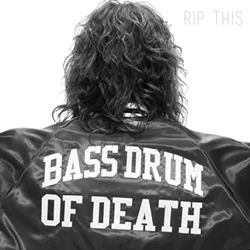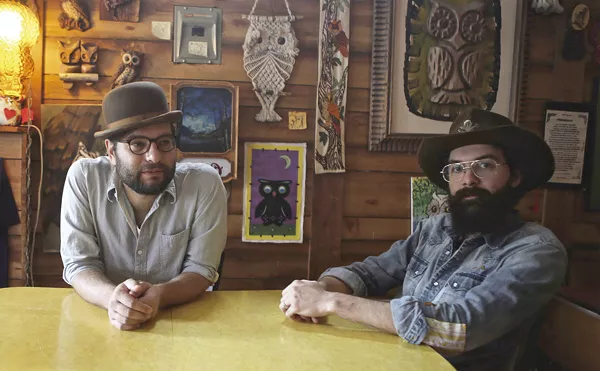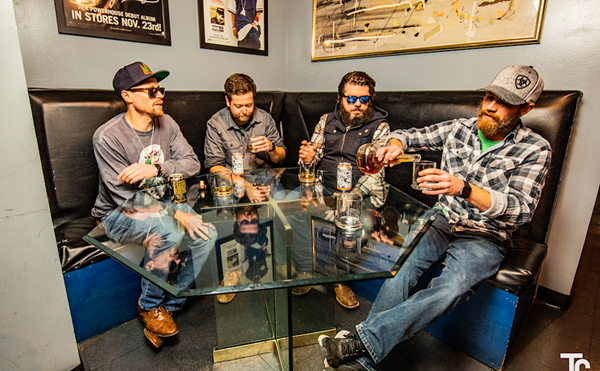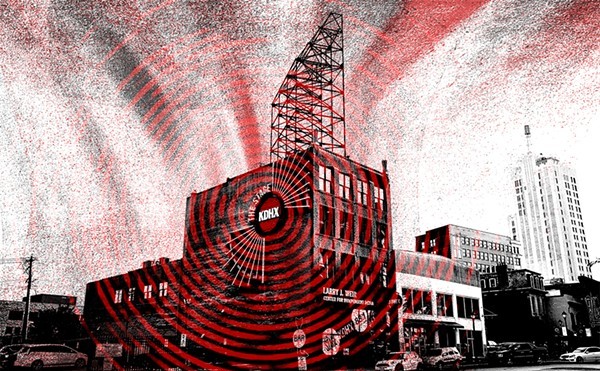One of the trickiest things for emerging artists to pull off is evolving one’s sound without sacrificing the core identity behind it. Growth is important, but too much experimentation can make artists lose track of their strengths. It’s a tough task, but one Bass Drum of Death has handled admirably on its third album Rip This. The Oxford, Mississippi, garage-rock duo trades the crunchy drums and effect-laden vocals of past albums for a cleaner, beefier attack on its latest release. The result is a more immediate and accessible production that sounds suped-up without being watered down.
Also adding to Bass Drum of Death’s development is new drummer Len Clark. His contributions to Rip This mark the first time that anyone besides guitarist/frontman John Barrett has played on the act’s releases. For a project that started out as Barrett playing guitar and singing while stomping on the band's titular instrument, this is a big step.
Yet for all of its recent changes, Bass Drum of Death remains pleasingly familiar. Rip This still features fast tempos propelled by driving guitars, infectious hooks, call-and-response vocals and a snotty rock & roll attitude. As it’s done before, the band will sometimes branch out into other rock subgenres (“Sin is in 10” is lurching stoner-rock while “Better Days” is an acoustic campfire singalong), but the bulk of the album consists of the hard-charging sound on which the group made its name.
Ahead of Bass Drum of Death’s October 5 show at the Ready Room, RFT Music caught up with Barrett to talk about the band's updated sound and lineup, Oxford’s music scene and the group’s history of licensing its songs to all forms of media.
Bob McMahon: Rip This is the first album where you have not played every instrument. Was this a positive change? Is this more collaborative approach something you see the band doing from now on?
John Barrett: Yeah, for sure. I’ve wanted to do it like that for a while, but when I was doing the first two records I wasn’t playing with Len yet. He definitely had a huge change on that. It’s definitely something I’ve wanted to do — play in the studio with other people. But yeah, I still pretty much work the same way. It’s just that now, the stuff that used to make the records — now those are just demos and we jump off from there. So yeah, it’s something I definitely want to keep on doing.
What do you think the biggest impact of having Clark in the studio is?
The biggest impact is he’s a way better drummer than I am. That changes a lot. He’s a very, very good drummer, and so it makes it really easy. He’s very easy to play with, and he also writes very good, inventive parts that I would never even have thought of. He’s a good person to have along.
I saw that you were happy to get a cleaner, bigger sound on this album. I read that you mostly wanted to not repeat yourself?
Yeah, you never want to make the same record twice and just keep mining from the same sort of town… With any record I don’t think you’re ever going to get it exactly right, but the closer you get, the happier you are with it. I’ve always been happy with all of the records. But there’s always something you can do better.
Do you have a specific creative process that works for you? Do you have a certain time of day or a certain mood that inspires you?
I usually work in the afternoons. I usually work by myself and start with drums. I’ll play drums first and just lay down a pretty basic beat, and just kind of go from there. Just kind of try to work out a song. Sometimes I’ll have something in my head all the way through, so I’ll play the drum part all the way through, record it, then just layer on top of it. So yeah, I don’t know, I usually work in the afternoon and do entire songs like that. When I know what I have in mind it takes me about an hour to do a song. But sometimes I don’t and that shit can take weeks.
You’ve licensed a lot of your songs to TV shows, video games and other media. Do you think this is an important revenue stream for new artists?
Yeah, especially now. With not as many records being sold across the board, it’s definitely a nice way to supplement. At the same time, a lot of that stuff wouldn’t go down for us if we didn’t put out records and tour. It’s not like I can sit in my room and just make songs and that happens. It’s because we’re constantly touring and making records and stuff like that. It is a very nice thing, and it is very cool and people go see a movie and they’re like, “Hey, we heard your song in a movie!” That’s never not going to be awesome. But yeah, it’s not something you can plan on and it’s not something you can bank on in any way. It’s just one of those things that’s a nice thing when it happens. I try to never get used to it because I know it can go away tomorrow.
Oxford, Mississippi, has a rich musical history but it’s not usually associated with the type of music you make. How did you get known there? Or did you have to go out of town?
My focus was always getting out of town, honestly. We didn’t ever really have good shows in Oxford until about two years ago. Or maybe not even that. Maybe like a year ago. It’s a funny place. It’s still a small town in Mississippi. Not a whole lot of people are stoked on the type of stuff that we do. I was always focused on touring and doing that sort of stuff more, like getting out. It was definitely a great place to be a home base. There’s a lot of space, it’s cheap to live and you can make noise a lot. I lived in the place four years, played house shows and a bunch of stuff like that. So I got to meet a lot of people doing those types of things. It’s the type of stuff you can’t really do if you live in a bigger place still. So yeah, it definitely was a great place to have as a jumping off point.
Bass Drum of Death
8 p.m. Monday, October 5. The Ready Room, 4195 Manchester Avenue. $20. 314-833-3929.

